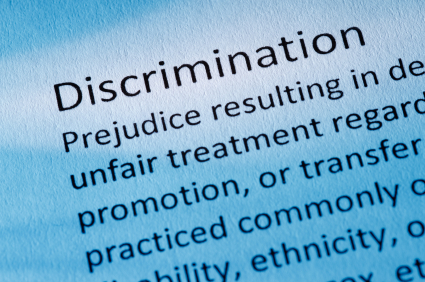Experiencing Discrimination? There is an Equalizer!
Fact: Only a small percentage of ‘situations’ involving discrimination end up needing court or government intervention, and that is the way it should be.
As a matter of fact, you should realize that once items are forced into the ‘light’ of conversation, they are usually worked out, even if they are not totally agreed upon. Employment grievances need to be dealt with correctly for an organization to maintain positive momentum. How they are handled is evidence of the quality and commitment to fairness of an organization.
I am a believer that employment grievances must be ‘nipped in the bud’, or in other words, handled early and professionally. If you are an employee who feels as if you are being discriminated against, you need to be prepared to detail your claims and concerns to your manager (See Black Sales Journal 3/3/2011 – When You Feel Screwed, What Do You Do?). You should record in writing your concerns and your complaints for your own review. Reducing concerns to writing is always a good practice. You should not have to convince yourself that your claim is real as it should be evident.
The next important step is to seek counsel from a mentor or confidant for the sake of objectivity. This gives you an opportunity to review with someone who is not emotional about the issue. It is important for you to have that outside, objective view, as your objective is to make sure that you have a legitimate and substantiated complaint. Your credibility is important, and this is just a first step.
Now the interesting part is that managers should do something similar with actions that they take. Managers should consult colleagues as well as the human resources department regarding actions that may result in potential claims. With the right amount of scrutiny, you end up with any decisions and actions that are markedly wrong being reviewed and cast correctly. It is just that simple. The exceptions to this are small firms without an HR department and those that have no systematic review.
The Equalizer
When discrimination happens, the federal government has put into place an ‘equalizer’ that can help to solve problems. This process is not a lawsuit. What they have put into place is an inexpensive way to challenge and be heard on issues involving racial discrimination.
The equalizers are the Equal Employment Opportunity (EEOC) laws. These laws make it illegal for employers to discriminate against an employee or potential employee in certain workplaces.
The Equal Employment Opportunity Commission (EEOC) is a federal agency that was created by the Civil Rights Act of 1964. This agency that is charged with the responsibility to “promote equal opportunity in employment through administrative and judicial enforcement of the civil rights laws and through education and technical assistance.”
There can be variance in some state laws, but federal laws prohibit discrimination in employment for the following:
- Race
- Age
- Disability
- Sex or Gender
- Sexual Harassment
- Religion
- National Origin
That means using it after all other options have been exhausted including discussions with your manager and certainly with your human resources department. There are many that are concerned about making those contacts, yet for something as important as your employment future, you need to be looking the people that affect you face-to-face. There is no benefit to ‘guerilla’ ambushing your employer in this situation, you should have your discussions about the types of items described in Black Sales Journal 12/30/2010 – Preference, Perceptions, Prejudice and Your Employer. Your manager needs to understand your concerns if you are aggrieved, and the first question that HR would have for you is, “Did you discuss this with your manager?”
Don’t be intimidated, have the discussion and once complete, reduce to writing in journal form the content of the discussion. Do not rely on your memory.
For the Price Of A Stamp
Filing an EEOC claim is inexpensive in terms of cost, as it used to be the price of a stamp. Note that if you are planning to file an EEOC complaint, you should use it wisely. I would suggest to you need legal counsel and patience. There can be monetary awards if they are warranted, but the process is not easy, and you should avoid any abuse at all costs.
If you have a claim, it should be evident to you and to those you discuss it with, including your counsel. This is not the place to play out a vendetta or grudge, but if you are aggrieved, it is the way to go after you have the discussion noted above.
There are time lines with the typical deadline to file a complaint with the EEOC being 180 days from the act of discrimination. If a state or local law applies to the same act, the deadline can be extended to up to 300 days.
The formal EEOC complaint can be filed at one of the field offices across the country (there are 53 field offices) or you can file by mail with a signed letter.
The EEOC does not accept claims on-line, but does have an online assessment tool that will help you determine whether you have a claim.
Use this information if you have good reason to, and remember that it is not what you know but what you can prove. Have your ducks in line, or forego the process until you do have them in line.
Always be the professional.
Your comments are welcome.
 March 15, 2012
|
Posted by Admin9!
March 15, 2012
|
Posted by Admin9!

 Categories:
Categories:  Tags:
Tags: 
Your Comments